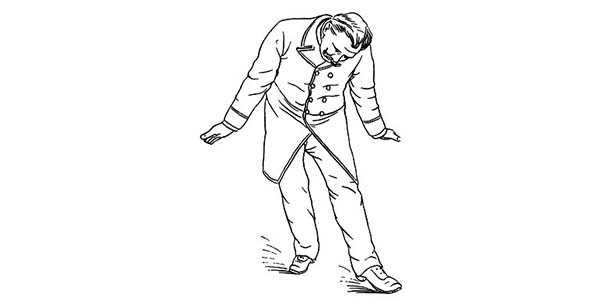Historically, flattery has been used as a standard form of discourse when addressing a king or queen. In the Renaissance, it was a common practice among writers to flatter the reigning monarch. Moreover, in our literature, we can see many poets and writers were flattering the kings. Let’s view a short story about King Canute.
Long ago, England was ruled by a king named Canute. Like many leaders and men of power, Canute was surrounded by people who were always praising him. Every time he walked into a room, the flattery began. One would say, “You are the greatest man that ever lived,” another would insist, “O king, there can never be another as mighty as you,” someone would smile, “Your highness, there is nothing you cannot do,” another would sing, “Great Canute, you are the monarch of all,” adding, “Nothing in this world dares to disobey you.”
Now, as I daresay you know, a king is often surrounded by men who wish to please him in every way. They are apt to think that, if they praise and flatter their royal master, they will get rich rewards for their trouble.
Even a foolish and bad king is sometimes made to believe that he is wise and good. Canute had his flatterers, too. They told him that he was the greatest king that ever lived. Not only was he master on land, but the sea, also, would do his bidding.
King Canute had too much sense to be pleased with such silly talk as this. So he made up his mind to teach these men a useful lesson, as soon as he had the chance to do so.
Now, not far away from the royal city of Winchester, where Canute lived, was a seaport named Southampton. Once the king was staying there, and, as usual, his courtiers were telling him of his greatness. “This,” thought the king, “is just the time and the place to show them how foolish they are.”
So he ordered his royal chair to be brought down to the sea-shore, quite close to the water’s edge. The tide was coming in. Canute sat down in his chair, and in loud tones told the waves not to flow over and wet his feet.
Around him stood his flatterers – now, quite silent – for they could see they were going to be found out. Of course, as you may suppose, the waves took no notice of the king’s command and a tiny wave rushed up the sand and lapped at his feet.. In a still louder voice, he cried, “O sea, I, your king, command you to go back.”
“How dare you!” Canute shouted. “Ocean, turn back now! I have ordered you to retreat before me, and now you must obey! Go back!”
And in answer another wave swept forward and curled around the king’s feet. The tide came in, just as it always did. The water rose higher and higher. It came up around the king’s chair, and wet not only his feet, but also his robe. His officers stood before him, alarmed, and wondering whether he was not mad.
Soon, the tide was flowing all round the king’s seat and where his courtiers were standing. He rose from his seat, and, turning to those near him, who were almost ashamed to look him in the face, he said: “Well, my friends, it seems I do not have quite so much power as you would have me believe. Perhaps you have learned something today. Perhaps now you will remember there is only one King who is all-powerful, and it is he who rules the sea, and holds the ocean in the hollow of his hand. I suggest you reserve your praises for him.”
When you are being complimented, be sure to really listen to the words that the other person is using. The verbal language of the admiring comment can be significant. For instance, a generic “good job” does not always express genuine appreciation, but a more detailed comment such as “you really worked hard on this, good work” indicates that your effort really has been noticed and the result is truly valued. An acquaintance who says “I like your outfit” may be using flattery to make conversation, or just wants to be liked by you. But the one who gives a more specific compliment like “the color of your dress really suits you” has probably noticed something special about your appearance that day and is sincerely expressing their admiration.
Though it isn’t always easy to distinguish between flattery and sincere appreciation, objectively observing body language and heeding the verbal clues given by your admirer will give you the discernment you need to tell the difference.
When you are complimented by a coworker or casual acquaintance, knowing the difference between sincerity and flattery becomes more challenging. Body language and facial expressions can be an excellent indication of someone’s earnestness. A comment like “you look nice today” doesn’t mean much if the person complimenting you does not stand still long enough to really look at you or even hear your “thank you”. Someone who honestly appreciates the way you look will slow down long enough to get your attention by at least giving you eye contact, if only briefly. A sincere compliment will be accompanied by a relaxed smile or a friendly pat on the shoulder or arm. Being aware of what the other person’s body language is saying will help you know if their appreciation is authentic or else.
To conclude, it should be noted that it is encouraging to hear sincere appreciation for the person we are. It builds our confidence to know that we have been noticed, and approved of, by someone else. Yet, sometimes those compliments are nothing more than flattery, a form of emotional manipulation used by the flatterers for their own personal gain. Hence, we are supposed to be cautious enough about our admirers.

